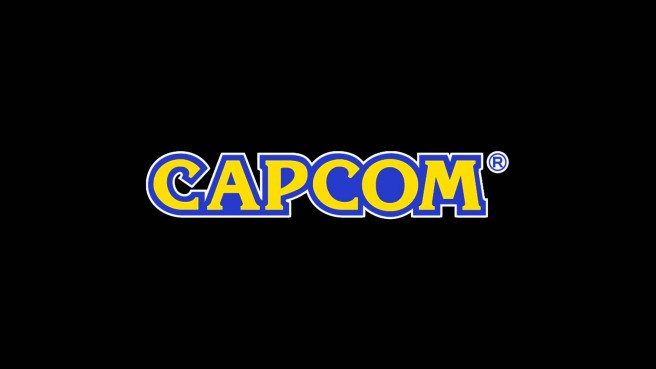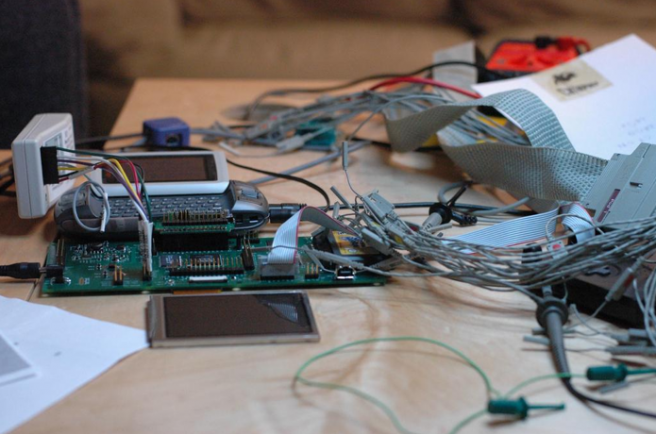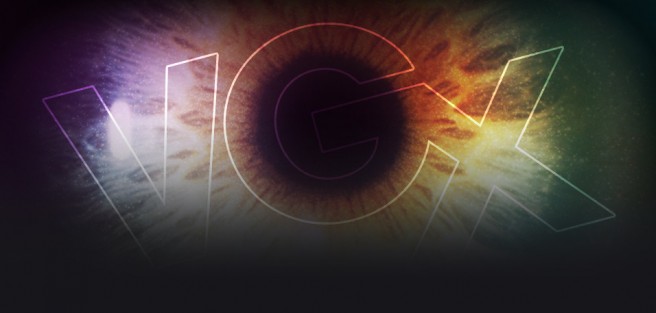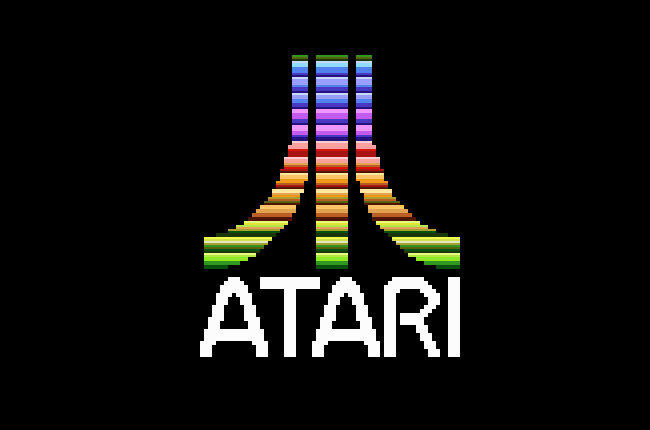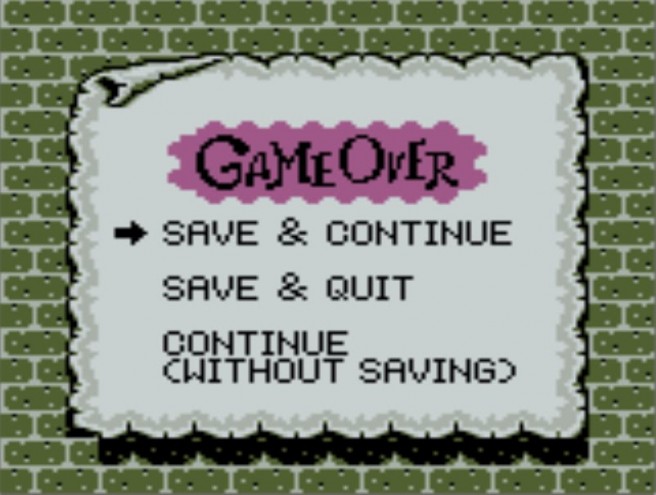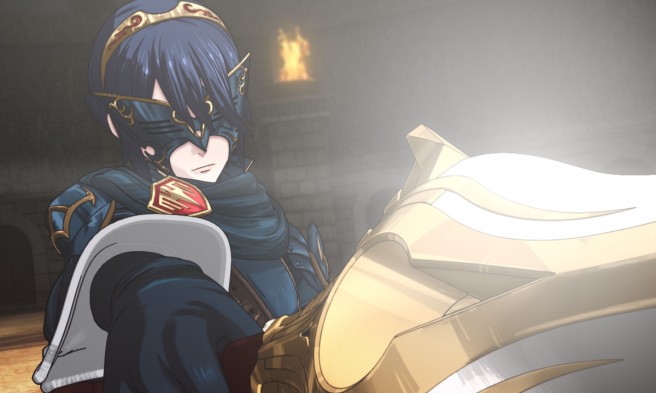Seth Rogen and Evan Goldberg to helm a movie based on the ’90s console wars, funded by Sony Pictures
Posted on 11 years ago by Austin(@NE_Austin) in General Gaming, General Nintendo, News | 5 Comments
As though we’d ever think this was going to happen: A movie (based on a book) about the 1990’s insane console war between Nintendo, Sony, and SEGA will be coming out, directed by Seth Rogen and Evan Goldberg (both of whom worked on last year’s This is the End). The book– authored by Blake Harris, who will write the film– that the movie is based upon hasn’t released yet, but the it is in the pre-production stages which means we could see it as early as next year.
No word on specifics; the above is all the real info we have.
Pier Solar HD set to release in April, 3DS version possible
Posted on 11 years ago by Patrick(@Patricklous) in 3DS eShop, General Gaming, News, Wii U eShop | 0 comments
Not only will the crowdfunded remake of this Sega Genesis RPG be hitting the Wii U in just a few months, it looks like a 3DS version of the game could be on the cards. In an interview with Nintendo Enthusiast, WaterMelon President Tulio Goncalves said that the company was hoping to release the Wii U version of the 90’s-JRPG-inspired title in April. Of course, the game was originally intended to release in December of last year, and then in “Q1 2014” so we’ll see. The Wii U version will make use of the console’s second screen, a feature that will be exclusive to Nintendo’s console – although Goncalves teased that it wouldn’t be exclusive for long if the game eventually made the jump to the 3DS. It might be a while before we see a 3DS version, though, as the game is already being ported to the Wii U, PS3, PS4, PC, Mac, Linux, Android, Xbox One, Ouya and Dreamcast. Phew.
More: eshop, pier solar
Capcom producer says that globally-involved companies that “only know Japan” aren’t well-positioned to accomplish anything
Posted on 11 years ago by Austin(@NE_Austin) in General Gaming, News | 9 Comments
Capcom is a company that has been trying for a while to dig itself out of financial trouble, and today prestigious producer from the company Yoshinori Ono has said that he believes companies that are only focused on understanding Japan simply can’t succeed worldwide anymore:
“The challenge for us now is determining the best way to adapt our approach for delivering services in each regional market. In Japan, for example, home video game consoles enjoy the same amount of popularity among gamers as smartphones and computers. On the other hand, there is little need to focus on game consoles in other Asian countries because they are only used by hardcore gamers. We do intend to continue marketing titles aimed at hardcore gamers, but in general our primary focus in the Asia is building up the market for online games.”
“Home video games are the most popular in the North America and Europe, so in that sense it’s like a larger version of the Japanese market. But recently the income gap has widened in certain areas, and there are differences in the attitudes people have towards games, so we need to adapt our services to fit the needs of each group. People involved in global business development who only know Japan have no real hope of accomplishing anything. To offer services adapted to each region, you need to take an active interest in regions outside Japan, and make an effort to understand their local customs and culture.”
– Capcom’s Yoshinori Ono
More: Capcom
Danger, Inc. created a Game Boy Advance-based mobile phone with digital game downloads back in 2004, “Nintendo were blown away”
Posted on 12 years ago by Austin(@NE_Austin) in GBA, General Gaming, General Nintendo, News | 2 Comments
Here’s an incredibly interesting bit of reading for you: A company called Danger, Inc. once took their prototype for a T-Mobile Sidekick (also known as the “hiptop”), merged it with a Game Boy Advance chipset, created an online “app store” of sorts to purchase digital Game Boy Advance game copies, and sent it off to Nintendo for them to take a look at. Nintendo’s response? Read it below, as it’s worth hearing it through the first-hand account:
More: Chris DeSalvo, Danger Inc.
Silicon Knights loses its appeal to Epic Games and must pay the ~$9 million fine
Posted on 12 years ago by Austin(@NE_Austin) in General Gaming, General Nintendo, News | 4 Comments
After a years-long legal battle, it appears that Eternal Darkness and Metal Gear Solid: The Twin Snakes developer Silicon Knights is going to end up paying a $9.1 million fine to Epic Games for allegedly using an unlicensed copy of Unreal Engine, breaching contractual obligations, and racking up court fees.
Silicon Knights hasn’t been up to much lately and the studio is a shell of its former self. Dennis Dyack– former leader of the developers there– has said that there’s only one or two people still officially working there, and after losing this legal battle it appears unlikely that they’ll continue. A sad way for the developer to go out.
Court Ruling via Gamespot
Intriguing study shows that some people may experience hallucinogenic side effects after playing games for extended periods
Posted on 12 years ago by Austin(@NE_Austin) in General Gaming, News, Podcast Stories | 5 Comments
Disclaimer for all study-based posts: This is not meant to be taken as positive or negative, nor is it wholly conclusive. It’s an intriguing set of data with which you can do what you please– not a moral conclusion in and of itself.
Researchers at something called the “Nottingham Trent University International Gaming Research Unit” have gathered data leading to an interesting observation: A portion of gamers experience minor visual/aural alterations to reality after playing games for an extended period of time, presumably 4+ hours straight. These alterations are called similar to hallucinations but not entirely the same thing.
The study covered 483 gamers and “656 experiences” that were gathered via online forums, and did not include a psychological profile of players. Researchers say that, after playing for long periods of time, some gamers continued to “see” (in a non-literal sense, of course) elements of the game that in some cases prevented them from sleeping or caused strange behavior. The professor of psychology at Nottingham Trent admitted that the study was not necessarily representative of gaming as a whole, but finds it interesting nonetheless.
Read more about the study over at Gamespot.
VGX producers are extremely happy with the success of this year’s show, and are already planning for next year
Posted on 12 years ago by Austin(@NE_Austin) in General Gaming, News | 10 Comments
Despite the vitriol online, this year’s VGX Awards appear to have been a big success on a technical level, with the show bringing more viewers for more time than they had every thought possible. Viacom’s Erik Flannigan said that the show “exceeded” their expectations, and that the average view time (32 minutes) was “way beyond our wildest dreams”.
Producer Casey Patterson chimed in, saying that they’re already talking about next year’s show:
“Yes, we would love to do this show again and those are the discussions we are having right now, and we’ll produce that show, that stream in the same way we produced this year’s which is to take the feedback of the gamers, good and bad.”
“The only thing we can do is assure gamers that we are listening. They can tell from the show we built this year that we like them talking to us. Good, bad, ugly, we want to them to continue to talk to us at the decibel that they have been.”
– VGX producer Casey Patterson
Atari prepping to exit Chapter 11 bankruptcy
Posted on 12 years ago by Austin(@NE_Austin) in General Gaming, News | 10 Comments
After approval by the U.S. Bankruptcy Court this past Thursday, Atari is preparing to enter the world of business again after filing for Chapter 11 bankruptcy back in January of 2013. The company (Atari Inc.) will get $3.4 million from its parent company (Atari S.A.) to get it out of bankruptcy, and then another $1.75 million to restart operations and try to turn a profit. No specific plans have been revealed for what they might do differently this time around, but we’ll likely hear news soon enough.
Develop Online via MCVUK
Reader Poll #30 – How much does dying affect the experience of a game?
Posted on 12 years ago by Austin(@NE_Austin) in Features, General Gaming, Reader Poll | 2 Comments
This is a survey that requires no signing up, accounts, clicking through ads, or anything. Just answer a required question, answer a non-required question (if you want) and make your voice heard in yet another NintendoEverything reader survey poll thing! Results will be read on the next podcast! Thanks very much.
Thanks very much. As stated above the topic for you guys this week is “How much does dying affect the experience of a game?” Check out two small questions in there.
More: highlight
ZombiU and Fire Emblem devs talk about working with perma-death in story-writing
Posted on 12 years ago by Austin(@NE_Austin) in 3DS, General Gaming, General Nintendo, News, Wii U | 1 Comment
In the latest issue of EDGE magazine there lays a feature about the inclusion of permanent death in a game– that is, when a character dies, they’re gone for good and you can’t do anything about it. Two notable examples of games that utilize permanent death (perma-death) have come within the last year or deux: ZombiU from Ubisoft on the Wii U and Fire Emblem: Awakening on 3DS from Nintendo. A designer from both games sat down with EDGE to discuss their experience with perma-death:
I think that all of the Fire Emblem games are fun, but a lot of beginner players stay clear of them because they think they are difficult. I think this is a real shame. A big reason for wanting to include this mode was so that those kinds of people could play Fire Emblem too…Since your characters come back when they die, one advantage is that you can play more aggressively or take more risks.
– Fire Emblem: Awakening director Kohei Maeda
[Writing ZombiU] was the toughest challenge I’ve faced in over ten years of writing for games. It took… the whole production team to find solutions for all the ‘But what happens if you die here?’ issues, which were sometimes mind-bendingly complicated.
I created the Prepper character and the survivors’ notes to establish a link and reinforce between the survivors who all fall under this mysterious character’s influence. Without a main player character, you need to embrace your main NPCs. Our character assemblage system produced avatars that were less gorgeous than a single player character would’ve been.
– ZombiU design director Gabrielle Shrager

